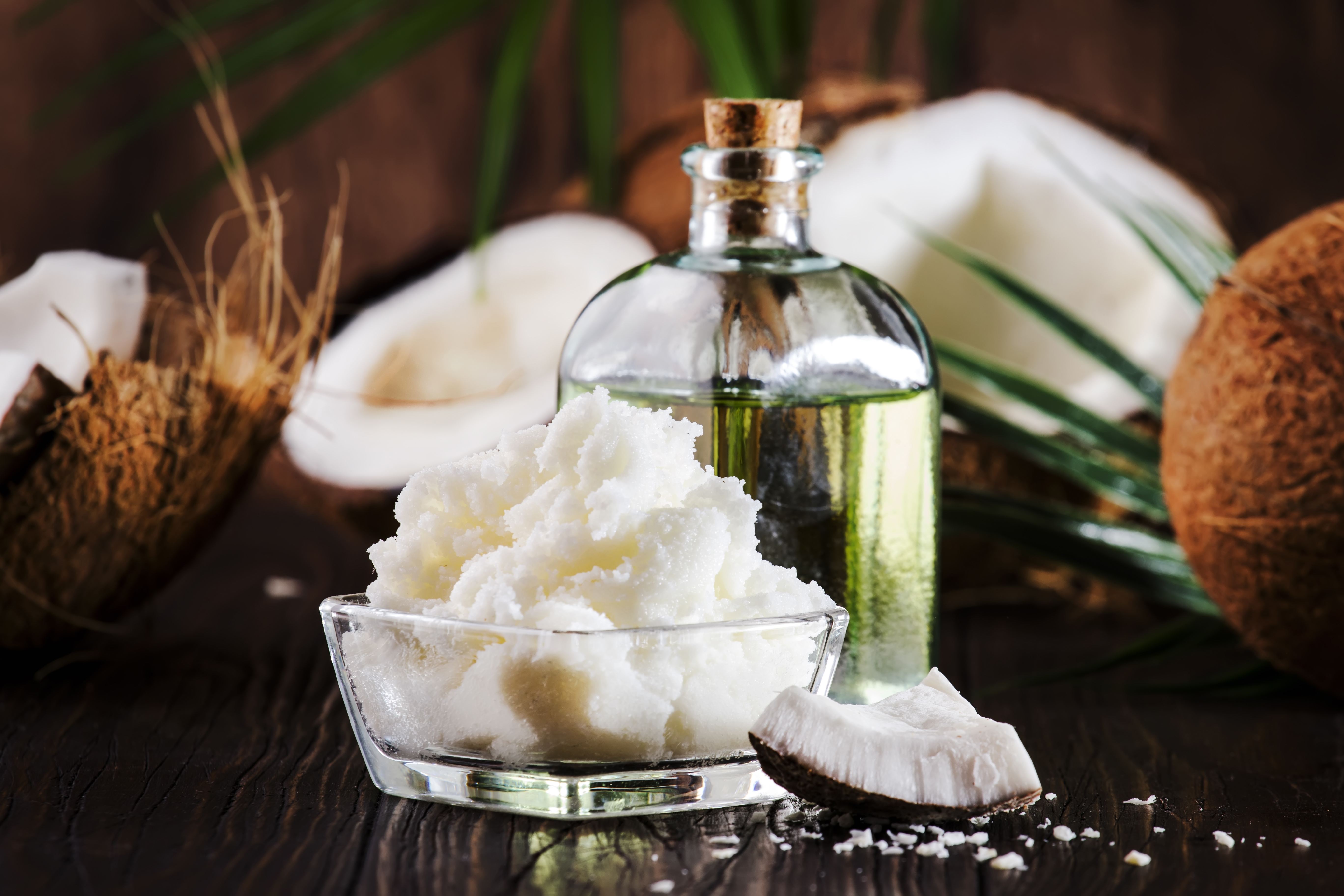13 'Forbidden' Foods You CAN Actually Eat with High Cholesterol
For decades, cholesterol has been a buzzword in the realm of health and nutrition, often associated with heart disease and dietary restrictions. Many foods, once deemed detrimental for those managing cholesterol levels, have been blacklisted without a second thought. However, recent studies and evolving nutritional guidelines have prompted a reevaluation of these dietary taboos. This article delves into 13 surprising foods that have been redeemed, offering insights into how they can be safely incorporated into a cholesterol-conscious diet. Let's get started!
1. Eggs: From Cholesterol Villain to Protein Hero

Eggs have long been the poster child for high-cholesterol foods, with yolks containing about 186 milligrams of cholesterol each. For years, dietary guidelines recommended limiting egg consumption to avoid raising blood cholesterol levels. However, contemporary research reveals that dietary cholesterol has a minimal impact on blood cholesterol for most people. Eggs are now recognized as a valuable source of high-quality protein, essential vitamins, and antioxidants like lutein and zeaxanthin, which support eye health. The shift in perspective highlights the importance of considering the nutritional profile of foods rather than focusing solely on their cholesterol content.
2. Shrimp: A Seafood Delight with Surprising Benefits

Shrimp, once shunned for its high cholesterol content, has made a comeback as a nutritious seafood option. While it is true that shrimp contains cholesterol, it is also low in saturated fat, which is a more significant factor in raising blood cholesterol levels. Additionally, shrimp is rich in omega-3 fatty acids, known for their heart-protective properties. These healthy fats help reduce inflammation and improve heart health, making shrimp a beneficial addition to a balanced diet. By understanding the distinction between dietary cholesterol and blood cholesterol, shrimp can be enjoyed without guilt.
3. Cheese: A Calcium-Rich Indulgence

Cheese has often been vilified for its saturated fat and cholesterol content, leading many to avoid it entirely. However, recent studies suggest that cheese, when consumed in moderation, does not significantly impact cholesterol levels. Cheese is an excellent source of calcium, protein, and probiotics, which contribute to bone health and gut microbiota balance. The key to enjoying cheese lies in portion control and choosing varieties with lower saturated fat content, such as mozzarella or feta. By incorporating cheese wisely into meals, individuals can savor its rich flavors while maintaining a heart-healthy diet.
4. Nuts: Nutrient-Dense Powerhouses

Nuts, including almonds, walnuts, and pistachios, were once restricted due to their high-fat content. However, these fats are predominantly unsaturated, which can help lower LDL (bad) cholesterol and raise HDL (good) cholesterol. Nuts are also packed with fiber, protein, and essential nutrients like magnesium and vitamin E. Studies have shown that regular nut consumption is linked to reduced risk of heart disease. By including a small handful of nuts in daily meals or snacks, individuals can enjoy their health benefits without worrying about cholesterol spikes.
5. Avocados: The Heart-Healthy Fat Source

Avocados have gained popularity as a superfood, but their high-fat content initially raised concerns for those managing cholesterol levels. Fortunately, the fats in avocados are primarily monounsaturated, which can improve heart health by lowering LDL cholesterol and increasing HDL cholesterol. Avocados are also rich in fiber, potassium, and folate, making them a nutrient-dense addition to any diet. By replacing saturated fats with avocados in meals, individuals can enjoy their creamy texture and health benefits while supporting cardiovascular wellness.
6. Dark Chocolate: A Sweet Treat with a Heart

Dark chocolate, once viewed as an indulgence best avoided, has emerged as a heart-friendly treat when consumed in moderation. Rich in flavonoids, dark chocolate has been shown to improve endothelial function, reduce blood pressure, and enhance blood flow. These compounds also have antioxidant properties that protect the heart from oxidative stress. Opting for dark chocolate with a cocoa content of 70% or higher ensures that the health benefits outweigh the sugar and fat content. By savoring a small piece of dark chocolate, individuals can satisfy their sweet tooth while supporting heart health.
7. Coffee: The Energizing Brew with Potential Perks

Coffee, often scrutinized for its caffeine content, has been the subject of numerous studies examining its impact on cholesterol. While unfiltered coffee can raise cholesterol levels due to compounds called diterpenes, filtered coffee does not have this effect. Coffee is also a rich source of antioxidants, which can reduce inflammation and protect against heart disease. Moreover, moderate coffee consumption has been linked to a lower risk of type 2 diabetes and certain types of cancer. By choosing filtered coffee and enjoying it in moderation, individuals can relish their morning brew without fear of cholesterol spikes.
8. Beef: Lean Cuts for Heart Health

Red meat, particularly beef, has been criticized for its saturated fat and cholesterol content. However, not all beef is created equal. Lean cuts, such as sirloin or tenderloin, contain less saturated fat and can be part of a heart-healthy diet when consumed in moderation. Grass-fed beef, in particular, offers higher levels of omega-3 fatty acids and conjugated linoleic acid (CLA), which have been associated with improved heart health. By focusing on portion size and cooking methods, such as grilling or baking, individuals can enjoy beef without compromising their cholesterol levels.
9. Full-Fat Yogurt: Probiotic-Rich and Satisfying

Full-fat yogurt, once avoided due to its saturated fat content, has gained recognition for its probiotic benefits and role in weight management. Probiotics in yogurt support gut health, which is linked to improved cholesterol metabolism and reduced inflammation. Full-fat yogurt is also more satiating, which can help control appetite and prevent overeating. Choosing plain, unsweetened yogurt allows individuals to enjoy its creamy texture and health benefits without added sugars. Incorporating full-fat yogurt into meals or snacks provides a satisfying and nutritious option for those managing cholesterol.
10. Shellfish: A Treasure Trove of Nutrients

Shellfish, including clams, mussels, and oysters, have been historically avoided due to their cholesterol content. However, these seafood options are low in saturated fat and high in essential nutrients like zinc, selenium, and vitamin B12. Shellfish also contain omega-3 fatty acids, which support heart health. The nutritional benefits of shellfish outweigh the concerns about dietary cholesterol, especially when consumed as part of a balanced diet. By enjoying shellfish in moderation, individuals can reap their health benefits while maintaining healthy cholesterol levels.
11. Coconut Oil: A Controversial Yet Versatile Fat

Coconut oil has sparked debate in the nutrition community due to its high saturated fat content. However, it contains medium-chain triglycerides (MCTs), which are metabolized differently than other saturated fats and may have a neutral or positive effect on cholesterol levels. Some studies suggest that coconut oil can raise HDL cholesterol, contributing to improved heart health. While it should not replace all other cooking oils, using coconut oil in moderation can add flavor and variety to meals. By understanding its unique properties, individuals can incorporate coconut oil into their diet without fear.
12. Popcorn: The Whole-Grain Snack with a Twist

Popcorn, often associated with butter-laden movie snacks, can be a heart-healthy option when prepared correctly. Air-popped popcorn is a whole grain that provides fiber, antioxidants, and low-calorie satisfaction. It is naturally low in fat and cholesterol, making it a smart choice for those managing cholesterol levels. By avoiding excessive butter and salt, and opting for healthy toppings like nutritional yeast or spices, individuals can enjoy popcorn as a guilt-free snack. The key lies in preparation, transforming popcorn from a guilty pleasure to a nutritious treat.
13. Butter: A Traditional Fat with Modern Insights

Butter, a traditional cooking staple, has been demonized for its saturated fat content. However, recent research suggests that moderate consumption of butter does not significantly impact heart disease risk. Butter contains fat-soluble vitamins like A, D, and E, and provides a rich flavor to dishes. The focus should be on moderation and balance, using butter alongside healthier fats like olive oil or avocado oil. By understanding its role in a balanced diet, individuals can enjoy butter without compromising heart health.
The evolution of nutritional science has challenged long-standing beliefs about cholesterol and diet, offering a more nuanced understanding of how foods impact heart health. The 13 foods explored in this article demonstrate that dietary cholesterol is not the sole determinant of blood cholesterol levels. By focusing on overall dietary patterns, quality of fats, and portion control, individuals can enjoy a diverse and satisfying diet without fear. Embracing a balanced approach allows for the inclusion of once-forbidden foods, enriching culinary experiences while supporting cardiovascular wellness. As research continues to evolve, staying informed and flexible in dietary choices is key to maintaining heart health and overall well-being.
